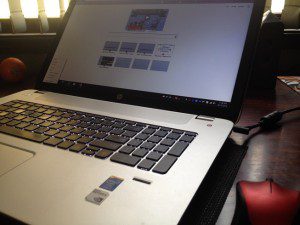
In this week’s column, psychologist and author Margaret Lambert casts a critical look on computers and how they may be affecting our health.
We rely so much on computers for almost all aspects of our lives – our alarm clocks, our fitness prompts, our work, entertainment, communication – and so much more.
Obviously computers benefit our lives in many ways – that is why we use them so extensively. But what is the downside of all our computer usage?
There are both short-term and long-term health and social problems associated with excessive computer usage.
Sedentary Lifestyle – Our bodies need to exercise regularly, and being in front of a computer for hours on end, without using our back and other body muscle, results in our bodies becoming sluggish and inflexible.
Sleeping Problems – Excessive computer use prior to bedtime can affect the quality of sleep due yo engaging the brain at a time when we should be winding down for sleep.
Headaches and backache – How is your posture when you are on a computer device and what are the ergonomics of your computer environment? Poor screen position, room lighting and chair can be a cause of headache and backache.
Social Interactions – Whilst computers are great to communicate with friends and can help reduce feelings of isolation, they can also have the opposite effect of increasing feelings of isolation and depression, as people can feel more personally depleted and alone when comparing their lives with the lives of others. Computer use, for many of us, has become compulsive and a form of escapism.
Concentration – Whilst using devices, we are often flicking from screen to screen and many of us are checking several screens at the same time. We have become accustomed to multitasking. As a result, our brains become accustomed to instant feedback with shorter concentration spans, and our proficiency for more focused work becomes reduced.
Some tips for managing computer devices

• Turn all screens off an hour before bedtime
• Check your posture when using any computers or devices. Check for correct screen position, room lighting and seating
• Take time each day to be computer free and immerse yourself in a good book or an activity that demands your single focus
• Limit the time you spend on computers and devices – get out in nature!
• Ensure you have real-person interactions and not just virtual ones
You can listen to the Blab conversation on Computers and Health here.
View health and wellbeing conversation via the Live Streaming page on my website.
Until next time.
Margaret Lambert
